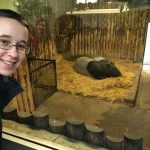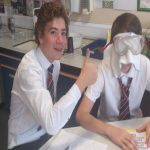N4/N5 Biology
Course Overview
Students who take National 4/5 Biology will study topics that include:
Cell Biology (DNA, proteins and enzymes, genetic engineering, photosynthesis, respiration)
Multicellular organisms (Stem cells, genetics, reproduction, plant and animal transport systems)
Life on earth (Ecosystems, energy, adaptation, nitrogen cycle, human impacts on the environment)
Methodology
Biology teaching staff use a variety of teaching methods to make the National 4/5 course stimulating and relevant for all learners.
Assessment
There is continuous assessment for individuals.
Pupils will be assessed in a variety of ways to collect information about their progress as part of their broad general education. Areas of assessment that will find specific focus are scientific literacy, numeracy as well as knowledge and understanding.
Teachers will gather evidence of pupils’ progress through what they say, write and do, as part of their everyday learning. Specific written assessments at the end of units/topics are vital in assessing progress at key points of learning.
Pupils will be assessed regularly through practical techniques and experiments, as well as the completion of investigations and reports.
Peer and self-assessment tasks will provide opportunities to develop independence and opportunities to evaluate, analyse and discuss – vital skills for life, work & learning.
Usually, students will have a mid-unit test as well as end of unit tests to assess attainment.
National 4 is internally assessment and does not have an exam at the end of the year.
National 5 is internally and externally assessed and an examinable component to the final grade in addition to coursework.
Recording & Reporting
Progression to National 4 or National 5 qualifications in Biology is the target for most pupils. In Fifth Year, pupils can progress by studying Higher Biology or Higher Human Biology. Progression to study Advanced Higher Biology in Sixth Year can take place, which could lead to a university course in many different Science based courses.
In terms of careers linked to the study of Biology, there are the obvious choices of Medicine, Dentistry and Veterinary Medicine. Linked to medical professions are Pharmacy, Pharmacology and many other biological type careers such as Marine Biology or Zoology. Biology is the main subject for those wishing to study Forensic Science and can be used for various types of Health Promoting vocations such as Physiotherapy. The problem solving nature of the subject makes it good experience for many walks of life even less related to a science career.













